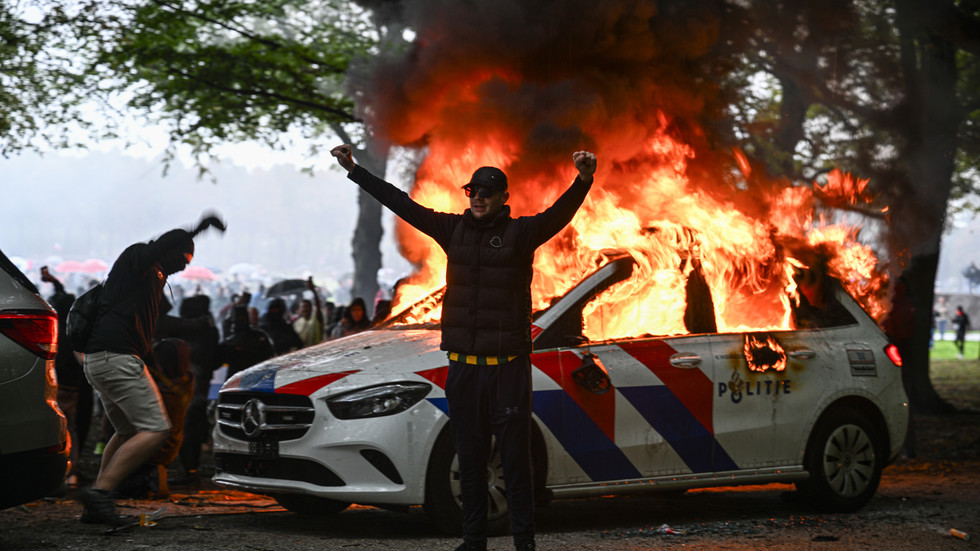Thousands reportedly took to the streets in The Hague ahead of an election in which migrant policy has taken center stage
An anti-immigration protest in The Hague erupted into violence at the weekend as protesters clashed with police and set a car on fire. At least 30 people were arrested and two officers injured, according to local authorities.
Mass protests against the government’s migration policy have been taking place in the Netherlands since late summer.
The unrest was triggered by the killing of a 17-year-old girl named Lisa, whose body was found in a roadside ditch near Amsterdam. Police arrested a 22-year-old asylum seeker who is also accused of raping another woman and attempting a second assault earlier in August.
On Saturday, thousands of people joined the protest and gathered in the center of the Netherlands’ political capital to demonstrate against immigration, clashing with police and causing significant damage, local media reported.
Protesters, many bearing Dutch flags and some associated with far-right groups, threw rocks and bottles at law enforcement officers. A police car was reportedly set on fire. Some participants broke away from the main gathering and blocked a highway. Police used tear gas and a water cannon to disperse the crowd.
The unrest erupted a month before the Netherlands is set to hold legislative elections on October 29. Debate over immigration and asylum policies is one of the central issues in the campaign.
Leading parties such as Party for Freedom (PVV), led by right-wing MP Geert Wilders, have pushed for tougher migration policy in the Netherlands, while other parties and civil society groups have raised concerns about rising polarization.
The migration crisis in the Netherlands has been worsened by the steady arrival of asylum seekers from Ukraine. Earlier this month, the Association of Netherlands Municipalities (VNG) warned that local shelters are full and people are being turned away. The group said nearly all of the country’s 97,000 municipal shelter spaces are occupied, while about 300 Ukrainians continue to arrive each week.
You can share this story on social media:
Read the full article here


